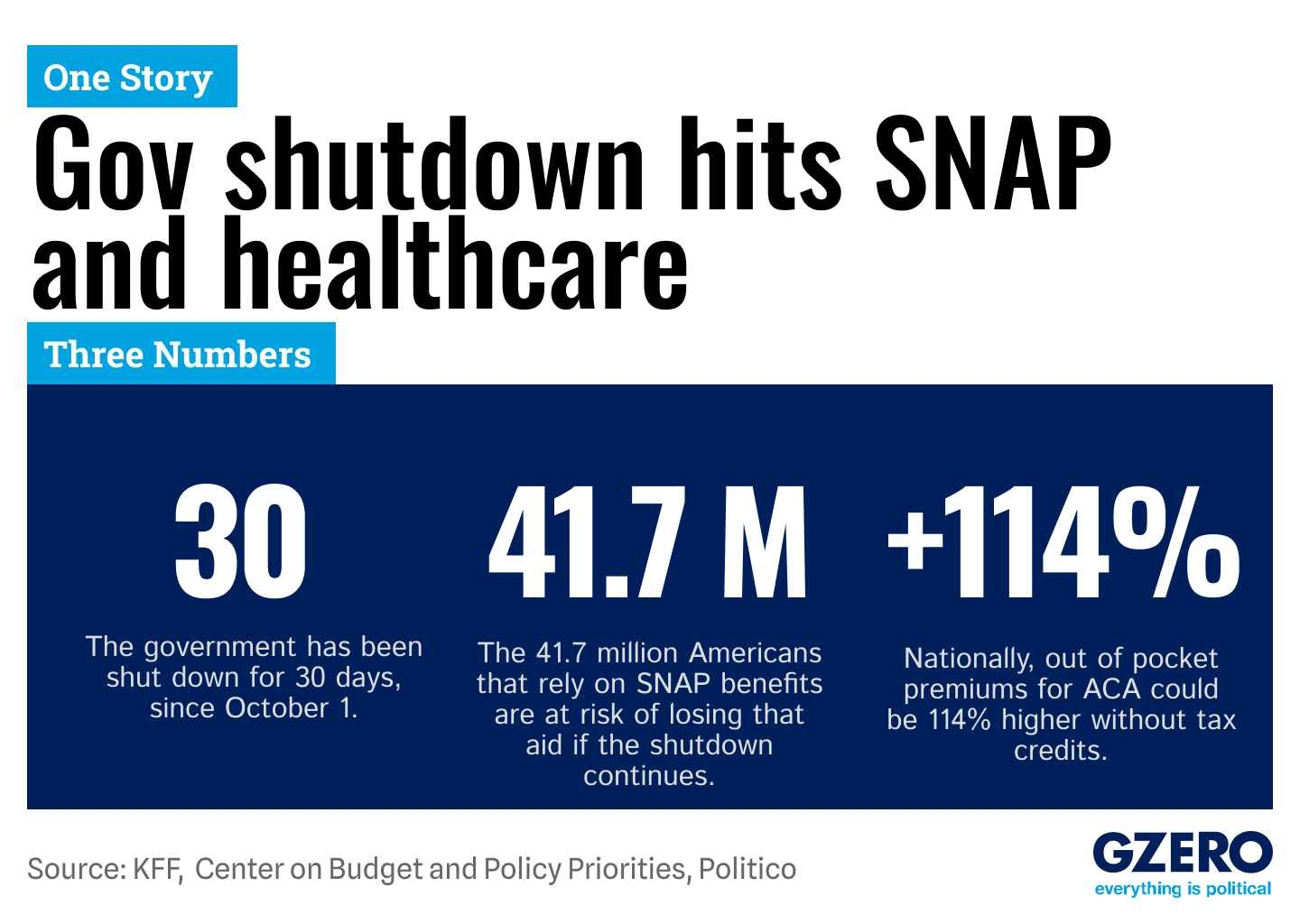October 31, 2025
The government has been shut down for 30 days, and this weekend could mark some breaking points. On Saturday, SNAP benefits are projected to run out. While a federal judge may rule for the food aid to continue flowing through an emergency government fund, it's not yet clear whether the nearly 42 million Americans who rely on SNAP will receive their benefits.
Also tomorrow, Americans who get their healthcare through the government’s Affordable Care Act will start enrolling for next year and find that prices have skyrocketed, increasing 30% on average in the 30 states where the federal government manages the market. Congress can mitigate those costs by renewing healthcare subsidies, but that has been the exact sticking point keeping the government closed. Democrats refused to vote to fund the government unless those subsidies were guaranteed, but Republican leaders say they won’t discuss the issue until the budget is passed and the government reopened.
Analysts say that the public backlash from healthcare price spikes and SNAP chaos could potentially bring the two parties to the negotiating table.
More For You
Xi Jinping has spent three years gutting his own military leadership. Five of the seven members of the Central Military Commission – China's supreme military authority – have been purged since 2023, all of whom were handpicked by Xi himself back in 2022.
Most Popular
Sponsored posts
Five forces that shaped 2025
What's Good Wednesdays
What’s Good Wednesdays™, January 28, 2026
Walmart sponsored posts
Walmart’s commitment to US-made products
- YouTube
In this episode of GZERO Europe, Carl Bildt examines how an eventful week in Davos further strained transatlantic relations and reignited tensions over Greenland.
- YouTube
In this episode of "ask ian," Ian Bremmer breaks down the growing rift between the US and Canada, calling it “permanent damage” to one of the world’s closest alliances.
An employee works on the beverage production line to meet the Spring Festival market demand at Leyuan Health Technology (Huzhou) Co., Ltd. on January 27, 2026 in Huzhou, Zhejiang Province of China.
Photo by Wang Shucheng/VCG
For China, hitting its annual growth target is as much a political victory as an economic one. It is proof that Beijing can weather slowing global demand, a slumping housing sector, and mounting pressure from Washington.
© 2025 GZERO Media. All Rights Reserved | A Eurasia Group media company.
